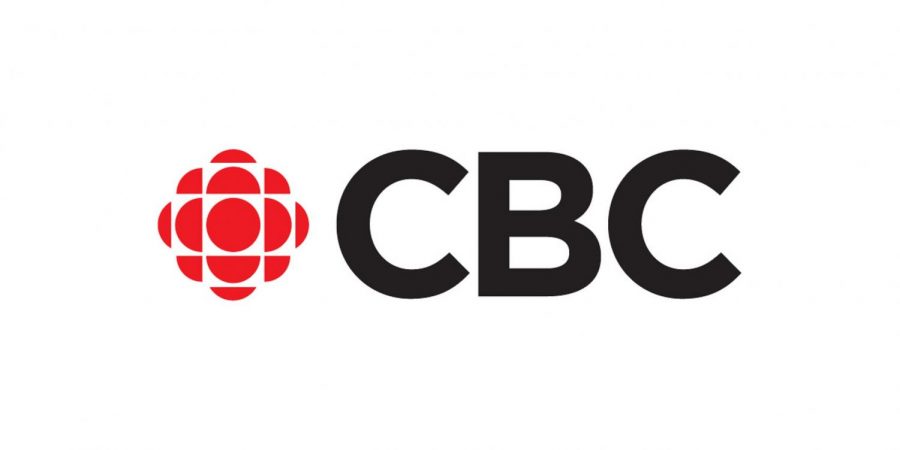Why the United States Needs a Central Broadcasting Service
The logo of the Canadian Broadcasting Corporation (Image courtesy of the Canadian Broadcasting Corporation)
May 15, 2021
The worsening political divide in the United States has caused people to selectively choose news sources that report similar, and often biased, views on current events. These “echo chambers” have contributed to the polarization of how Americans view the political state of the nation, since people are only receiving news from select viewpoints and, as a result, are often unwilling to accept other opinions. In addition, echo chambers have provided the basis for numerous conspiracy theories on both sides of the aisle that have resulted in conflict, most notably during the insurrection of the United States Capitol on January 6. At a time of so much polarization, we need to follow Canada’s lead and develop a central broadcasting service.
The Canadian Broadcasting Corporation, or CBC, is the national broadcaster of Canada. The organization has provided news to residents nationwide since its founding as “Radio-Canada” in 1936. In 1938, they began broadcasting entertainment such as radio serials, including Un Homme et son péché, which ran for the next 22 years. In 1952, CBC began broadcasting on television. During the internet age, the network has adapted yet again to provide news on both their website and on social media 24/7.
The CBC is a crown corporation, meaning that it is fully supported by the government but works as its own entity. Canadians and international citizens alike have trusted the CBC for nearly one hundred years to provide free and quality news that, for the most part, is free from bias. At the moment, the United States does not have a centralized broadcasting service with the accessibility of the CBC. While the Public Broadcasting Service, or PBS, is a public network, it is a consortium of 354 independent stations — each develops different segments for the network as a whole. In addition, it is mostly funded by independent donors, while the CBC is wholly funded by the federal government, allowing for a reliable income stream. The United States also has a nationally-run radio station, the Voice of America, but it mainly serves international listeners.
A widespread centralized broadcasting corporation would benefit Americans because it would allow for people to have another option to get their news; furthermore, if successful, the corporation could help ameliorate the political divide we are currently facing. If people can receive news from more and unbiased sources, they may be able to compare and contrast information received from social media and other outlets.
Another argument for a new network is that the platform will provide affordability and be distributed on multiple platforms. At a time when news sources are replete with expensive subscriptions and paywalls, a free and accessible news platform would allow more people to have access to news, which may improve political education and increase voter turnout as a result.
An issue that may arise, though, is having influence from politicians in power. However, this concern can be fixed by having all of the executives in the organization appointed independently. Another remedy could be to bring in a bipartisan group of trustees, as well as professors and industry representatives, to work closely with the organization to ensure its quality and neutrality. Lastly, it would be important to ensure that the program is allocated by law and part of federal spending, so it cannot be repealed or changed easily through executive order.
Having an impartial news service would help diffuse tensions between political parties by giving facts instead of opinions. We are living in a time where quality news is becoming more biased, and a central news source would be beneficial because it would allow students to ensure that their sources are accurate and substantial. News is an essential part of our daily life, but we need to develop a service that delivers a more accurate portrayal of our nation and the world.
Sources
https://cbc.radio-canada.ca/en/your-public-broadcaster/history



